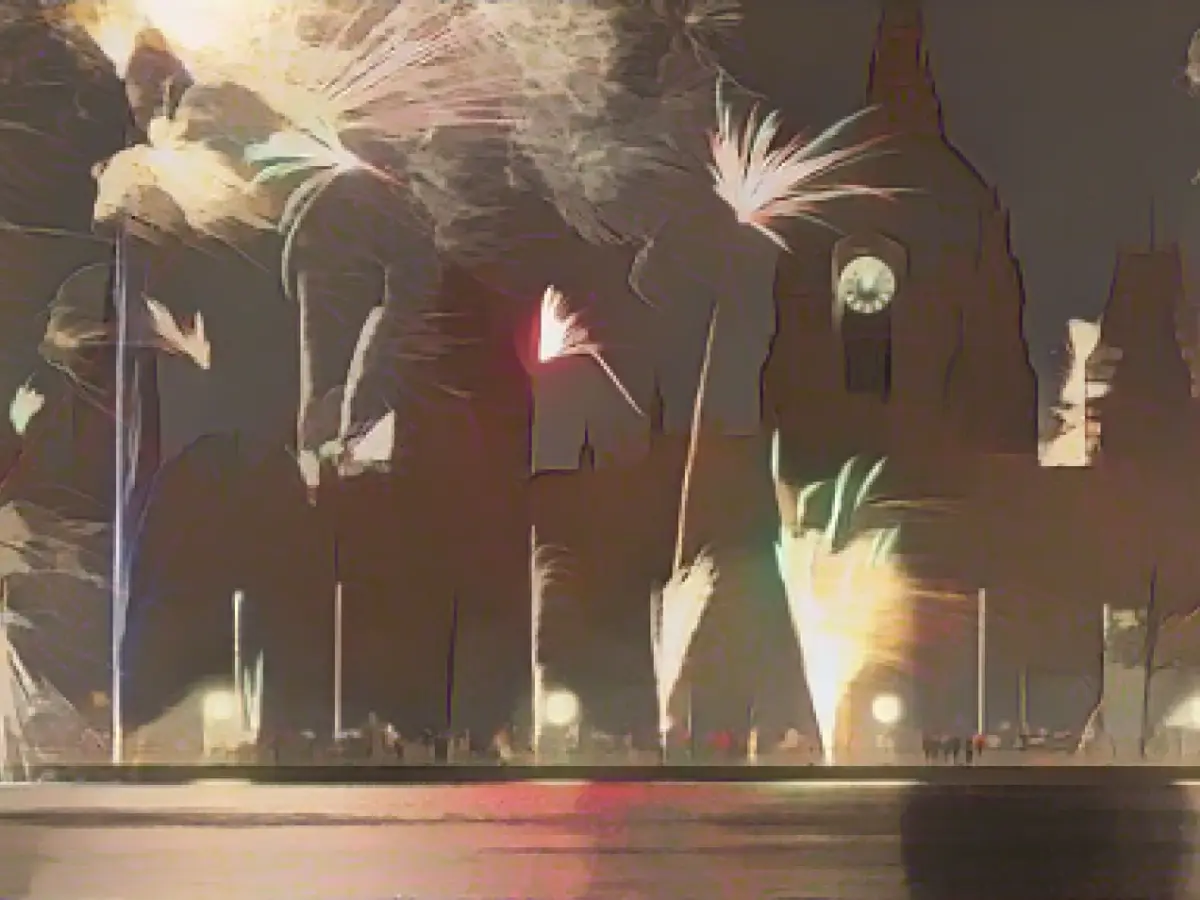Prime Minister - Weil against a general ban on firecrackers: "I like the rockets"
Lower Saxony's Minister President Stephan Weil does not believe in a general ban on firecrackers on New Year's Eve. "It would be a shame if those who follow the rules had to suffer because there are others who don't," the SPD politician told the German Press Agency. On the other hand, he believes that municipal bans on fireworks in particularly endangered areas are expressly correct. Interior Minister Daniela Behrens (also SPD) had previously taken a similar stance.
"For a large majority in our society, firecrackers and setting off fireworks are part of the New Year," said Weil. This not only applies to those who set off fireworks themselves. "I don't take part in it either, but I like the rockets that go off at twelve o'clock." He thinks it's nice when colorful lights appear in the sky at the turn of the year, even if he doesn't take part himself.
Bremen's head of government Andreas Bovenschulte also rejects a general ban on firecrackers. "As a child and teenager, it was always the greatest thing for me to be able to set off fireworks on New Year's Eve," said the SPD politician. He also used to set off firecrackers and rockets with his two daughters. In Bremen, there is already a ban on firecrackers in some areas - including around the historic town hall and on the Schlachte, a popular promenade on the Weser.
The German environmental organization Deutsche Umwelthilfe and the police union Gewerkschaft der Polizei (GdP) are among those in favour of a ban on firecrackers. They point to the number of people injured on New Year's Eve, the expense for the emergency services, pollutants in the air and panic among animals. According to Umwelthilfe, more than 180,000 people have signed an open letter calling for a "firecracker-free New Year's Eve".
According to a survey, a slight majority of people in Germany also have a negative view of firecrackers at the turn of the year. One in three (34 percent) is a staunch opponent of fireworks, according to a survey conducted by the opinion research institute YouGov on behalf of Deutsche Presse-Agentur. A further 19 percent said that they "rather dislike" firecrackers and rockets. In contrast, 14% are "completely in favor" of traditional New Year's Eve fireworks.
With regard to the risk of renewed violence against emergency services at the turn of the year, Weil said that he very much hoped that such attacks would come to an end. "If there are any attacks, the police and judiciary will react consistently. I also hope that there will always be people who clearly tell the perpetrators in such situations that this is the completely wrong way to go about things." For the vast majority of society, it is incomprehensible how it is possible to attack rescue workers who want to help injured people.
Last New Year's Eve, the police in Lower Saxony were called out to 3245 incidents. This included 34 attacks on members of the police, fire department and rescue services.
Regarding the security situation overall, Weil said that it was also tense against the backdrop of the war in Gaza throughout the western world. "We are extremely vigilant. And we also advise citizens to be vigilant, but not to allow themselves to be intimidated," said the head of government.
In response to the question of a general ban on firecrackers, Interior Minister Behrens said that she was concerned that "thousands of people are injured by fireworks every year, which means that the emergency services and police are always in great demand at the turn of the year". In addition, firecrackers played an inglorious role in the New Year's Eve riots last year. "However, it is also true that the overwhelming majority of citizens use fireworks peacefully and responsibly on New Year's Eve," said Behrens at the end of November.
Open letter from Umwelthilfe
Read also:
- A clan member is punished here
- Traffic lawyer warns: Don't talk to the police!
- Will he be convicted as Jutta's murderer after 37 years?
- He also wanted to kill his cousin
Lower Saxony's Minister President Stephan Weil, from the SPD party, opposes a widespread ban on firecrackers during New Year's Eve, expressing a sentiment that many in the society enjoy this tradition. Bremen's head of government Andreas Bovenschulte, also an SPD politician, shares his view, recalling his personal experiences with fireworks. The SPD politicians disagree with the German environmental organization Deutsche Umwelthilfe and the police union Gewerkschaft der Polizei (GdP), who advocate for a firecracker ban due to safety concerns.
New Year's Eve incidents involving injured people, high expenses for emergency services, and pollutants in the air have become common, giving rise to negative views towards firecrackers among some sections of society. The holiday season saw 180,000 people signing an open letter calling for a 'firecracker-free New Year's Eve'. However, according to a survey, a slight majority still shows support for traditional New Year's Eve fireworks.
Last New Year's Eve, the police in Lower Saxony dealt with 3245 incidents, among which 34 were attacks on emergency service personnel. Injuries and attacks on rescue workers at the turn of the year have become a matter of concern for politicians like Stephan Weil and Daniela Behrens, the Interior Minister, who also supports targeting specific dangerous areas for firecracker bans.
Stephan Weil and other politicians emphasize the tension surrounding the New Year's Eve period due to geopolitical events such as the war in Gaza. They appeal to citizens to remain vigilant while not allowing themselves to be intimidated.
The SPD politicians' views on firecrackers are subject to debates and opposing arguments, which reflect the complexities of New Year's Eve traditions, safety concerns, and societal norms. The issue continues to attract attention and engagement from the public and lawmakers alike.
Source: www.stern.de








